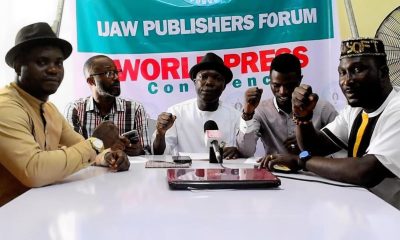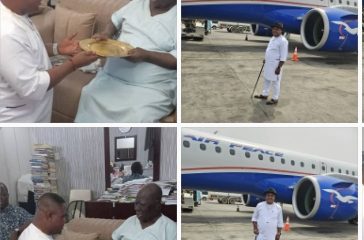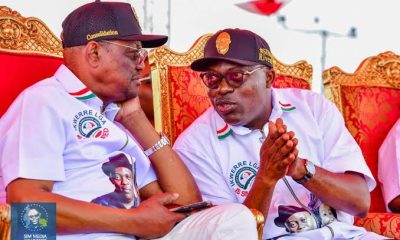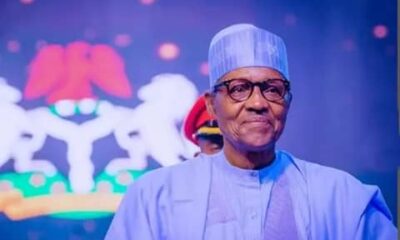Opinion
What E.K. Clark Said to President Buhari as He Takes a Bow.
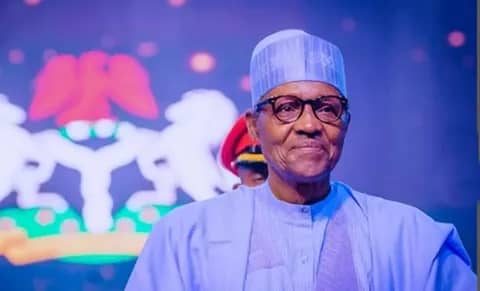
May 28, 2023.
A FAREWELL ADDRESS BY CHIEF (DR.) E.K. CLARK OFR, CON, TO OUTGOING PRESIDENT MUHAMMADU BUHARI GCFR, COMMANDER-IN-CHIEF OF THE ARMED FORCES, FEDERAL REPUBLIC OF NIGERIA, REGRETABLY ON HIS MANY UNFULFILLED PROMISES, NEGLECT AND MARGINALIZATION OF THE NIGER DELTA
Mr. President, as your administration winds up on 29th May 2023, a retrospective rumination of the government’s activities in the last 8 years, vis-à-vis our interactions with the President, the Vice President, Prof. Yemi Osinbajo, and other bureaucrats of the administration; the promises made, the dispositions and actions of the administration to the Niger Delta, lays out sad and irritating realities of worrisome inconsistencies, discrimination, marginalization and neglect.
2. The truth is, President Muhammadu Buhari is leaving the nation, especially the Niger Delta region, worse than he met it. He is bequeathing bouquet of unfulfilled promises, divided nation and myriad of critical federal infrastructural projects in shameful states, especially roads, and particularly in the Niger Delta region; in addition to the debilitating state of insecurity in most parts of the country, being perpetrated by the menacing killer herders, Boko Haram and ISWAP terrorists, heinous bandits, kidnappers and sundry criminals; to the extent that a vast majority of citizens, particularly the youths, are gripped by feelings of annihilation, fear and desperation due to lack of adequate protection by the government resulting to the now common “japa syndrome”, where leaving the country has become the aspiration of most active Nigerians.
Sadly, a sizable number of the Nigerian youths, particularly the professionals are leaving our dear country in droves to other climes particularly; Canada, Britain, USA, etc. There was a particular occasion in 2020 during the Covid-19 pandemic when about 50 medical Doctors were going to Britain for greener pastures, and they were returned at the airport by the immigration, but nobody knows how these Doctors later found themselves in Britain within two weeks. Today, we have a lot of Nigerian nurses scattered in Britain and other nations of the world.
3. I am 96 years old now, and I have been actively involved, by the Grace of God, in the affairs of Nigeria and the Niger Delta region, for over 70years, I have seen it all.
4. Outgoing President Muhammadu Buhari declared in his inaugural speech on May 29, 2015 and I take liberty to cite.
“Having just a few minutes ago swore on a holy book, I intend to keep my hope and same as President to all Nigerians. I belong to everybody and I belong to nobody”
In the past 8years, President Muhammadu Buhari has demonstrated in most cases that he did not belong to the whole country but to a group; his tribe and religion, which is contrary to what he said in his inaugural speech that he belong to everybody.
For instance, he appointed fourteen out of seventeen security Chiefs from one section of the country. So, the declaration that “he belongs to everybody and nobody”, was a sham. I make bold to say that the reverse has been the case, “he belongs to some people”, but not the entire Nigeria.
5. Even in simple matters like extending the good wishes of the government to notable personalities in the country on their birthdays or other landmark attainments, the Muhammadu Buhari administration was selective and biased in who it chooses to recognise or consider worthy of goodwill messages.
Muhammadu Buhari’s team has publicly recognised the anniversaries of people who in all humility are either much younger than me, or have contributed much less than I have, to this country. On my 91st birthday in 2018, I protested this anomaly in an open letter to President Muhammadu Buhari. I became 96 on Thursday last week; the Buhari administration did not deem it fit to send a goodwill message to me.
6. Given my patriotic services to Nigerian, three of my colleagues in General Yakubu Gowon’s government’s cabinet became Heads of State and President of the Federal Republic of Nigeria, mainly, General Murtala Mohammed, General Olusegun Obasanjo, and Alhaji Shehu Shagari, over the past 70 years. I regard myself as a senior citizen of this country. I am convinced that if President Muhammadu Buhari was not illiberal and “belongs to everybody”, he would have been consulting me for advice.
Let me recall that I worked for release of the over 200 Chibok girls who were abducted from their school in 2014. For instance, when Ms. Bilikisu Magoro raised the issue of the abduction of the girls during the National Conference, the former Inspector General of Police (IGP), Alhaji Gambo Jimeta, asked me to move a motion condemning the abduction and to plead to the federal government to do everything to secure the release or rescue of the school girls.
At some point, Senator Shehu Sani approached me and related that he had been working with former President Olusegun Obasanjo for the release of the girls and they had visited Maiduguri on several occasions without success. That he was advised to approach me to partner with him in the quest for the girls’ release. I agreed!
Subsequently, the federal government was informed and we met with some leaders of the Boko Haram sect in a place where I do not want to mention. Dr. Cairo Ojogbou, a former Member of the House of Representatives and Presidential adviser at the National Assembly, moved around to some places on my behalf. The Red Cross in Abuja was involved, and the Swiss Embassy was represented by the Ambassador who had meetings with us including; a school proprietor in Maiduguri and a confidant of the Boko Haram, because some of the children they left behind in Maiduguri were attending his school.
During the negotiation, the Boko Haram sect gave us names of seven (7) of their leaders who were detained in Kuje prison by the federal government, they want those persons to be swapped in exchange for the school girls.
Following which the federal government constituted a committee that was headed by late Chief of Air Staff, Alex Badeh, with the then Director General of Department State Service (DSS), Mr. Ita Ekpeyong, and other security men as members. They went to the prison, but they could only identify 4 of the 7 said Boko Haram leaders. But unfortunately, our attempt to get the girls to do the exchange failed in Yola due to reasons I do not want to disclose here.
7. It is some of the men I worked with including Senator Shehu Sani and the school proprietor in Maiduguri that the Buhari administration used in securing the freedom of some of the Chibok girls. But, unfortunately, till today, the government could not consider it necessary to recognize my contributions, apparently because I do not belong to Buhari’s tribe and religion.
While President Muhammadu Buhari’s government did not appreciate the role we played in the rescue of the Chibok girls some of the girls’ parents travelled all the way from Chibok in Borno state to pay me a ‘thank you’ visit last year on 23rd February, 2022. I also learnt more about the abduction of these innocent girls and the effect it had on their parents.
8. At my age, the present government had treated me with ignominy to the extent of sending armed policemen in loaded vans to my Abuja residence on 4th September 2018, to search my residence with a warrant procured from a certain Magistrate Court with the false allegation that I was stockpiling arms and ammunition from the Niger Delta. And the search took place for about two hours, and by the time they ended, journalists and eminent Nigerians, in utter bewilderment, had flooded my residence to know what was going on. The Ijaw youths in Rivers, Delta, Bayelsa and other places were already demonstrating against the federal government for invading my house. I thought if I belonged to Mr. President, he would have personally apologised to me for the embarrassment they caused me.
Among the prominent Nigerians who visited to sympathised with me included; former President Goodluck Ebele Jonathan, former Vice President Alhaji Atiku Abubakar, Alh. Rabiu Musa Kwankwaso, a delegation of Senators and government senior officials from Akwa Ibom State sent by Governor Udom Emmanuel, Senator Bukola Saraki, Senator (Dr.) Arthur Ifeanyi Okowa, the governor of Delta state, Tanimu Turaki, the former Minister of Special Duties, Femi Fani-Kayode, Chief Chukwuemeka Ezeife, Professor Kingsley Moghalu, Alhaji Attahiru Bafarawa, Kingsley Burutu Otuaro, Deputy governor of Delta state, Senator Shehu Sani, late Air Commodore Idongesit Nkanga, who was then the National Chairman of PANDEF, Gen. Zamani Lekwot, late Air Commodore Dan Suleiman, Senator Seriake Dickson, late Yinka Odumakin, Chief Mrs. Bucknor Kofoworola Akerele, late Alabo Tonye Graham Douglas, Senator Ben Bruce, Senator Stella Omu, Aisha Aliyu, Senator Bassey Ewa Henshaw, Ann-Kio Briggs, etc.
9. Having expressed my own personal travails with the President Muhammadu Buhari’s administration, I will now address His Excellency on the issues of neglect and marginalization of the Niger Delta region.
When then Acting President, Prof. Yemi Osinbajo, visited Uyo, Akwa Ibom State in March 2017, as part of fact-finding tour of the Niger Delta region, he told our people at a Town Hall meeting that the International Oil Companies (IOCs) would be directed to relocate their Headquarters to the Niger Delta where they operate from. Unfortunately, this was not revisited again because the Gbajabiamilas’ opposed it, knowing fully well that without these IOCs headquarters in Lagos, Victoria Island, and some other parts of Lagos state will be empty. In fact, Chevron has an estate for workers in Gbagada, Lagos.
Since after President Muhammadu Buhari returned from his medical trips, the issues of dialoguing and fulfilling the 16-point demand that was presented to the federal government on Nivember 1, 2016 by Pan Niger Delta Forum, (PANDEF) has remained unattended to by the Muhammadu Buhari’s administration.
10. The sad truth is that the South-South Geopolitical Zone has been treated very unfairly by the outgoing administration, despite the region’s contributions to the national economy. For reasons unknown to me, there has also been series of unwarranted and unjust actions against people of South-South Extraction, even with regards to top appointments in the federal public service, in last seven years.
That brings to mind, the way and manner the former Chief Justice of Nigeria, Justice Walter Onnoghen, GCON, was harassed and humiliated out of office, to the extent that the office of Chief Justice of Nigeria was denigrated.
12. The situation in the Petroleum Industry is even more appalling, where the discrimination and seeming snobbery have been elevated to unreasonable heights. It appears all strategic positions in the NNPC and its subsidiaries are reserved for people from the Northern zones of the country, while the peripheral positions are for people from the South-South.
The situation whereby the Niger Delta Region continues to suffer marginalization and isolation in critical sectors of the Country, especially in the Oil and Gas Sector, should be unacceptable to all fair-minded humanity. While our resources are being managed mainly by people from other parts of the country, the people of the oil-producing communities of the Niger Delta, who bear the brunt of the degradation, arising from the oil and gas exploratory activities, receive mere soupçons and are rendered spectators of the oil business.
13. At this juncture, it may be necessary I reproduce a news item published in Punch Newspaper on Tuesday, May 23, 2023 by Damilola Aina;
“Gas flaring: Companies fined N346bn in five years, says CBN
23rd May 2023
Oil and gas companies paid a total of N346bn as penalty for flaring gas in five years, according to data from the Central Bank of Nigeria. The amount was marked as part of the federally collected revenue. Gas flaring is the surface combustion or burning of natural gas, often associated with crude oil production when pumped up from the ground. It is burnt off or a, as part of the oil production process.
According to the World Bank, the practice has persisted since the beginning of oil production over 160 years ago and takes place due to various issues, from the market and economic constraints to a lack of appropriate regulation and political will.
However, the Federal Government had in recent times led campaigns for gas monetisation against flaring. Findings showed that an undisclosed number of companies paid the sum between 2018 and 2022 as companies continue to flare gas. It was observed that the fines maintained a steady increase of over 1,491 per cent from N4.5bn paid in 2018 to N71.6bn collected in 2022. A breakdown showed that the companies paid N4.5bn in 2018, N86.2bn in 2019, N87.1bn in 2020, N96.5bn in 2021, and N71.6bn in 2022.
However, oil and gas analysts linked the rise in gas flaring to low fine by the Federal Government, lack of infrastructure investment, among others.
According to a 2022 report by the National Oil Spill Detection and Response Agency, 12 Million tonnes of CO2 emitted into the atmosphere from gas flaring has contributed to global warming.
To tackle this, the Chairman, Society of Petroleum Engineers, Nigeria Council, Prof. Olalekan Olafuyi, in a recent interview, said the Federal Government would increase gas flare penalties as Nigeria races towards achieving its commitment to the United Nations net zero goals by 2060. Although he did not state how much increase the flare rates would attract, he said the council was working closely with the Nigerian Upstream Petroleum Regulatory Commission on the matter”.
14. The flaring of gas as referred to above in the humiliating piece, published in the Punch Newspaper have been on for a very long-time and I remember addressing this issue in a lecture I gave at the Nigerian Institute of International Affairs in Lagos over 30 Years ago, where I stressed the damage being done by gas flaring to the host communities in the Niger Delta. The damage done to buildings where the roofs have all become darken by the flaring sooth and the disease caused by the gas flaring; every Nigeria Government has promised to stop the gas flaring and to pay part of the money being paid by the oil and gas companies to the victims has yielded no return. During a protest to Mr. President by first class Chiefs about two years ago and host community leaders of the Niger Delta; the President promised that the matter will be seriously looked into and money paid, but nothing has been done by Mr. President, by way of compensating the host communities.
Likewise, the abandonment of the Export Processing Zone (EPZ), Deep Sea Port Project in Gbaramatu and Gas Revolution Industrial Park Project at Ogidigben in Delta State, and related projects in the Niger Delta Region from where the gas is gotten, in favour of the $2.8 billion Ajaokuta-Kaduna-Kano (AKK) Gas Pipeline project; and the callous exclusion of Oil Producing Communities from participation in the Oil and Gas Industry, including the Ownership of Oil Marginal Fields and Blocks, are issues that cannot be swept under the carpet.
15. We had demanded that Niger Delta indigenes, with the capacity and willingness to participate in the Oil and Gas industry, should be given the Right of First Refusal in the Bidding Processes for Marginal Fields and Bloc, but all we got was a tone-deaf snub. Only very few were awarded to people from the Niger Delta in the last marginal field bid round.
Perhaps, we should also ask the immediate past Minister of State for Petroleum, Chief Timipre Sylva, to tell the Niger Delta people, now that he wants to be Governor of Bayelsa State again, how many of the 57 marginal oil fields were gotten by persons from the oil and gas producing host communities of the Niger Delta region.
Most regrettably, in 2021, President Muhammadu Buhari with rare swiftness assented to the Petroleum Industry Bill, which was passed by the equally lopsided National Assembly, despite overwhelming outcry and condemnation that greeted certain provisions of the Bill, especially the paltry 3% provision for the Host Communities Development Trust Fund and the shameless appropriation of an outrageous 30% of NNPC Ltd profit for a nebulous Frontier Oil Exploration Fund. The PIA fell grossly short of the expectations of the Oil and Gas Producing Communities; certain provisions of the act legitimized the subjugation of the oil and gas-producing host communities.
The point which must be underscored here is that the Niger Delta people are not interested in handouts; we want to be shareholders, not servitudes, hence we demanded for 10% and not 3% in the industry that operates in our backyards.
Today, the international oil companies are reportedly, hastily and abysmally, divesting their onshore assets to indigenous proxies, without any recourse to the oil and gas host communities, given the devastation done to our environment by their exploration and exploitation activities, over the years.
16. The state of Roads and other critical Infrastructure in the Niger Delta region equally leaves a sour taste in our mouths.
The East-West road remains an ugly stain on Nigeria’s Political Administrative logic, especially for something considered a Signature Project, because of its economic significance. No substantial inch of construction work has been added in the 8 years of the Buhari Administration. Sections of the road supposedly constructed were washed away like whitewash on walls by the 2022 floods, obviously due to the poor standard of work done.
The Calabar-Itu Road is in an appalling state of disrepair even months after its takeover by NNPC Ltd. The Benin-Sapale-Warri Road is not anything different; recently, women and youths protested over the deplorable state of the road. And if one may ask, what is the status of the US $333m Bodo-Bonny Road, a project expected to open up opportunities for rapid socio-economic development of the areas, even with a reported contribution of US $167m by the Nigeria Liquefied Natural Gas (LNG) Limited?
17. Meanwhile, four years ago, the Minister of Works and Housing, Babatunde Fashola, while addressing the House of Representatives Committee on Works, disclosed that 524 road projects were ongoing in the six geopolitical zones of the country. Fashola said there were four multilateral-funded road projects, 81 under the Presidential Infrastructural Development Fund and 45 others being funded under the Sukuk bond.
Mr. Babatunde Fashola, again, on 3rd November 2021, advanced a list of major roads that have been completed by the Federal Government and which were ready for commissioning nationwide. The minister reeled out the names of the roads when he appeared before the House of Representatives Committee on Works to defend his ministry’s 2022 budget proposal in Abuja.
Certainly, billions of naira, from the Niger Delta oil and gas, have been approved and expended on the construction and rehabilitation of roads and bridges across the country, excluding roads and bridges in the South-South zone.
Some of the roads and bridges reportedly completed or being constructed/reconstructed include: the Kano-Maiduguri Road linking Kano-Jigawa-Bauchi-Yobe and Borno States Section II, covering over 177 km said to have been executed for N65.32 billion naira and another Section of 101.84 kilometers for N45.18 billion; the rehabilitation of Sokoto-TambuwaI-Jega-Kontagora-Makera Section in Sokoto and the Kebbi States, length put at 155 kilometers executed for N30.45 billion; Nenwe-Oduma-Mpu (Enugu State) – Uburu (Ebonyi State), which is 40.27 kilometers long, with a contract sum N12,598,151,083.54; the rehabilitation of Nguru-Gashua-Bayamari Road, Section II (Gashua-Bayamari), said to be 25 kilometers long, executed for N6,581,999,666.55; the rehabilitation of Vandeikya-Obudu-Obudu Cattle Ranch Road (Vandeikya-Obudu Section) in Benue for N6.69 billion.
Construction work has also been ongoing, day and night, on the Lagos-Ibadan Expressway; the Second Niger Bridge has been completed and commissioned, likewise the Kano-Katsina road, the Ibadan-Ilesa-Ife road, and other roads across the country are completed or near completion, except roads in the South-South.
18. Whereas, Fashola said, the Ministry of Works and Housing have about 13,000 kilometers of roads and bridges under construction and rehabilitation in 856 contracts, comprising 795 projects and aggregate length of 815 kilometers of roads and 733m of bridges. The only projects listed in the South-South zone are the construction of a two-lane Bridge at the Cameroon-Nigeria Border at Ekok/Mfum, including Approach Roads.
The critical question, in all of these, is where are the roads and bridges in the South-South zone in the said list of 854 contracts comprising road and bridge projects of the Ministry of Works and Housing?
19. In October 2021, the federal government approved NNPC’s request to take over the reconstruction of 21 federal roads nationwide, totalling 1,804.6 kilometres at N621.2 billion naira, under the Federal Government’s Executive Order No. 007 of 2019 cited as the companies income tax (Road Infrastructure Development and Refurbishment Investment Tax Credit Scheme) signed by President Muhammadu Buhari. From the information that was made available, in terms of kilometres (length of the roads), the South-South had the least with only 52.2 kilometers. The North Central had 1,479.9 kilometers; North West had; North East had; South-East had 122 kilometers and South West had 119 kilometers. The question we asked at the time was, what were the reasons for such an absurd distribution? What was the yardstick ?
In January this year, 2023, the Federal Executive Council at its meeting of January 18, 2023, which was presided over by Vice President, Yemi Osinbajo, approved another request by NNPC to reconstruct 44 additional roads across Nigeria at N1.9 billion, the East-West road and Benin-Sapele-Warri road were not captured. For the federal government to wait until less than a month to the end of its tenure to reportedly approve NNPC’s takeover of the reconstruction of the Benin-Sapele-Warri road is deceitful and insulting.
The minister of works and housing, Mr. Babatunde Fashola, neglected the South-South zone in the allocation and distribution of projects by his ministry, in tandem with the established pattern of the Buhari administration. Even the housing units being built by the federal government across the country, we are unaware of any being built in the south-south.
Recalled that when the $311 million Abacha loot was returned from the United States in 2020, the South-South was excluded in projects designated for the fund, which included the second Niger Bridge, Lagos-Ibadan and Abuja-Kaduna-Kano expressways, as well as the Mambilla Power Project in North East zone; no project in the South-South zone was listed. That scenario was repeated with the Ibori loot.
20. The Federal Government seems to have been instigating situations to truncate the proper functioning of every Government Agency with direct bearing on the development of the Niger Delta Region, and the well-being of its people. Consider what went on at the Niger Delta Development Commission (NDDC) for over three years where billions of naira were squandered by the Commission under the supervision of Ministry of Niger Delta Affairs, while President Muhammadu Buhari watched on like an unconcerned spectator. The situation at the Presidential Amnesty Programme (PAP) is not anything different, given the blunt refusal by the president to appoint a substantive Coordinator for the programme; craftily keeping the Programme under the control and command of the National Security Adviser for prejudiced purposes. The program has now become everybody’s affair in Nigeria.
Meanwhile, in paradoxical parallels, the North East Development Commission, NEDC, the Ministry of Humanitarian Affairs, which is effectively a “Ministry of Northern Affairs” and other agencies, are operating unfettered.
21. Conclusively, uncivilized bias, unfairness, and nepotism have been the staple characteristics of the Buhari administration. For instance, as I had cited earlier, out of the 17 top Military, paramilitary, security, and Intelligence related positions in Nigeria; persons from the northern zones of North West, North East, and North Central are at the helm of fourteen while only three are held by persons from the three southern zones of south-south, southeast, and southwest. The government need not be told that discrimination is a danger to any society, particularly, a plural society like ours.
We, I and 15 other patriotic Nigerians, are currently in court, over the desecration of the Federal Character Law on appointments by the Buhari Administration.
Probably, it never occurred to President Muhammadu Buhari that he is president of the entire country and not just a section; and that he was elected by all zones of Nigeria, including the southern zones; without the votes from the South, he would not have satisfied the constitutional requirement of 25% in 2/3 of the States and the Federal Capital Territory to become President of Nigeria.
22. I considered it an obligation to make this communication from a standpoint of patriotism to limelight the failures of the outgoing administration, particularly, the callous inattention of the administration to issues of the Niger Delta region and to further accentuate the developmental necessities of the people of the region, with the justified expectation that the incoming federal administration will bestow a fairer disposition and responsiveness to the Niger Delta region.
What is needed, indeed, is a just, equitable, and more egalitarian approach to the administration and management of the nation’s resources and the conduct of state affairs. THIS COUNTRY BELONGS TO ALL OF US!
Signed:
Chief Dr. Edwin Kiagbodo Clark, OFR, CON
Elder Statesman and Leader, South-South/PANDEF
Opinion
“Delta: Worst in Educational Institutions Distribution” – Mulade Declares as He Calls for Ijaw Inclusion
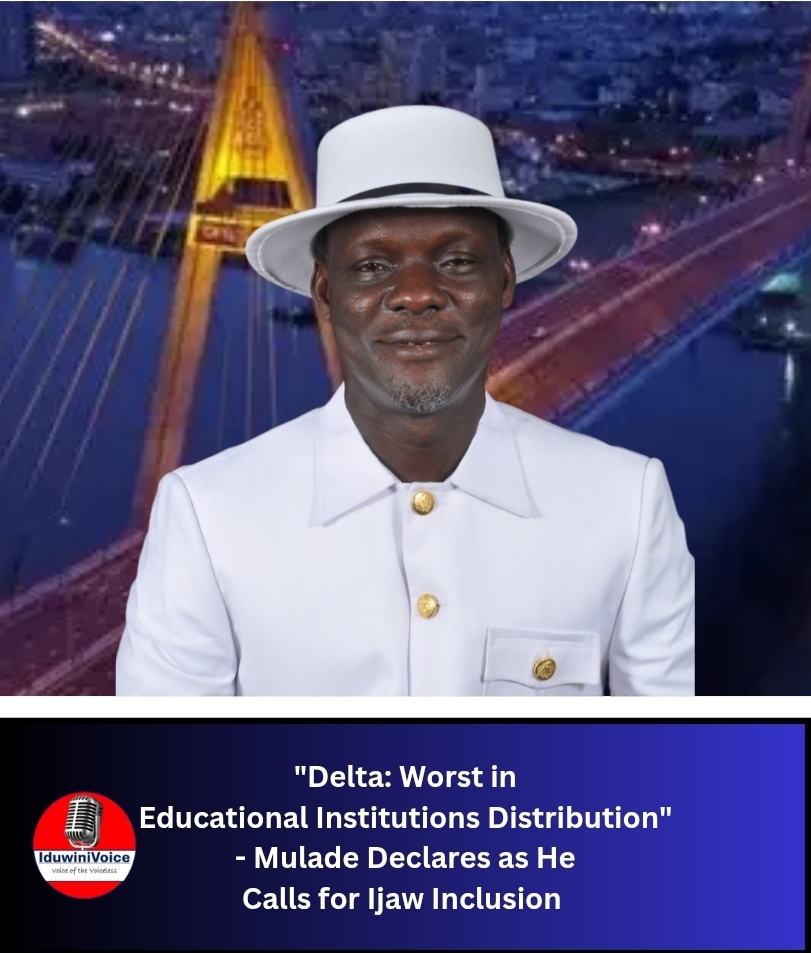
By: Favour Bibaikefie
A development Ijaw leader and development advocate, Comrade Mulade Sheriff, PhD, has accused the Delta State Government of systematic marginalisation and deliberate neglect of Ijaw communities, particularly in the area of educational development and institutional presence.
Mulade, who described the situation as “unjust, provocative and unacceptable in a democratic society,” said the continued exclusion of Ijaw areas from the siting of state-owned educational institutions represents a clear case of structural discrimination, despite the region’s enormous contribution to the economic survival of Delta State.
Dr. Mulade, “It is painful and unacceptable that a people whose land produces greater portion of wealth sustaining this state are treated as second-class citizens when it comes to development especially in the area of higher educational institutions. This is not only unfair; it is dangerous for the unity and future of Delta State.”
The Ijaw-born activist listed the existing state-owned tertiary institutions in Delta State and pointed out that almost all are concentrated outside Ijaw territories, reinforcing a long-standing pattern of exclusion as regards State-Owned Universities such as:
– Delta State University, Abraka;
– Southern Delta State University of Science and Technology, Ozoro; Southern Delta University of Science and Technology, Orerokpe Campus;
– Dennis Osadebay University, Asaba;
– University of Delta, Agbor;
– State-Owned Colleges of Education and Health Institutions:
– Federal College of Education (Technical), Asaba;
– College of Education, Edjeba Road, Warri;
– Delta State College of Physical Education, Mosogar;
– School of Midwifery, Asaba;
– State School of Nursing, Edjeba, Warri;
– College of Nursing Science, Sapele;
– Delta State-Owned Polytechnic Institutions:
– Delta State Polytechnic, Ogwashi-Uku;
– Delta State Polytechnic, Otefe-Oghara;
– Delta State Maritime Polytechnic, Burutu; (with the poorest infrastructure and lacks).
Mulade stressed that out of all these institutions, only one, the Delta State School of Marine Technology, Burutu is located in Ijaw land, a reality he described as “appalling, insulting and indefensible.”
“One institution for an entire ethnic nationality that contributes massively to Delta State’s oil wealth is not just marginalisation; it is a deliberate policy of neglect,” he declared.
The rights activists further lamented that while Ijaw communities bear the environmental burden of oil exploration including polluted rivers, destroyed farmlands and health risks, they are consistently denied the benefits of development, especially in education.
“Our youths are denied opportunities not because they lack potential, but because the government has refused to bring development to our doorsteps. This imbalance is breeding frustration, and must be corrected urgently,” Mulade warned.
The Ibe-Sorimowei of the ancient and oil-rich Gbaramatu Kingdom in Delta State, Chief Mulade Sheriff strongly appealed and called on Governor Sheriff Oborevwori to rise above politics, sentiment and take deliberate steps to correct the imbalance by prioritising the siting of new educational institutions in Ijaw areas, upgrading existing infrastructure and appoint qualified Ijaw sons and daughters as Vice-Chancellor and other principal officers in Delta educational architecture as compensation now.
“Governor Oborevwori must show that he is a governor for all Deltans, not for a select few. The Ijaw people deserve fairness, inclusion and respect. Educational development is not a favour; it is our right,” he stated.
He warned that continued neglect of Ijaw areas could deepen feelings of alienation and undermine the sense of belonging among the people.
Demand for Equity and Justice
Mulade concluded by calling on civil society groups, traditional rulers, youth organisations and stakeholders across Delta State to speak out against structural injustice and demand a more equitable distribution of development.
“This is not just an Ijaw issue; it is a justice issue. A state cannot develop sustainably when a significant part of its population is consistently excluded,” he said.
Opinion
Ijaw Nation Is Watching Delta State 2026 Budgetory Allocations – Dr. Mulade Warns
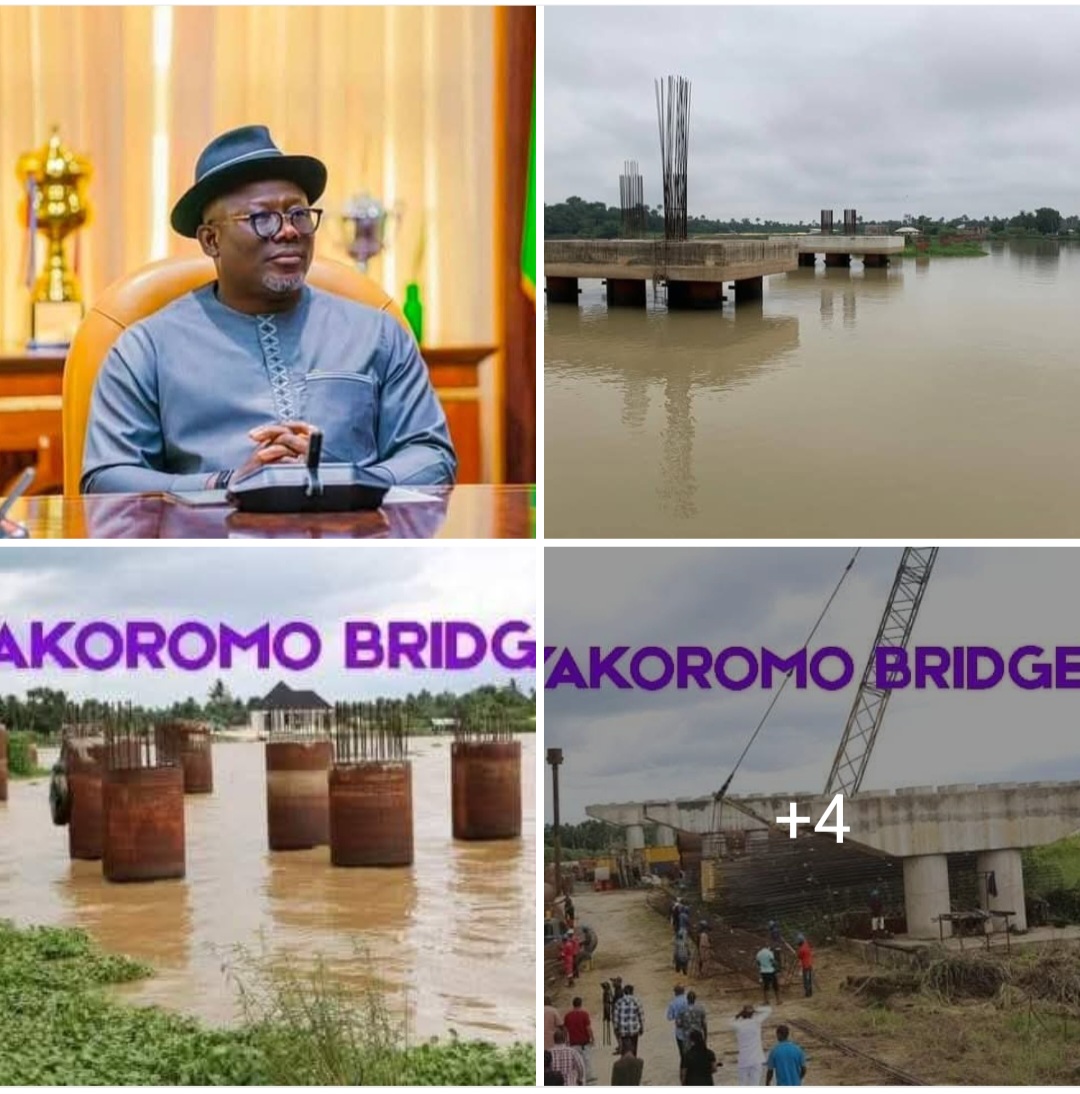
* As Group Gears Up to Endorse Governor Sheriff Oborevwori for 2027
By: Divine Perezide
Ahead of the 2027 general elections gradually inches closer, the political terain have seen a lot of endorsements at various levels. In Delta, there have been reports of a planned endorsement of governor Sheriff Oborevwori as the sole candidate by a group of Delta Ijaws. This has however, triggered reactions from many stakeholders, including a prominent Ijaw leader, peace and development advocate, Comrade (Chief) Mulade Sheriff, PhD, who has declared that Ijaw votes in 2027 would be determined by projects allocated, adequately funded to completion in the 2026 budget.
The renowned human and environmental rights activist made the declaration at a press briefing after an expanded stakeholders meeting in Warri on behalf of Ijaw Ethnic Nationality in the state.
According to the Ibe Sorimowei of the ancient Gbaramatu Kingdom, the adequate inclusion and funding of projects in the riverine areas will serve as critical consideration for political support, and riverine communities predominantly occupied by the Ijaws and Itsekiri ethnic nationalities.
While he commended the infrastructural development stride by governor Oborevwori in the upland areas, Mulade however lamented the absence of such infrastructural revolution in the riverine areas of the state despite the population density and huge revenue contributions to the state as host to multinational oil and gas companies.
He said, “I want to sincerely appreciate His Excellency, Rt. Hon. Sheriff Oborevwori, for the infrastructural development, which I described as infrastructural revolution in the state, particularly in the upland, and your proposed commissioning of the reconstructed Odimodi-Ogulagha road earlier constructed by SPDC in the 1980’s for their operational convenience and community residents.
“It is imperative to state that some Ijaw communities such as Ogulagha, Torugbene, Oporoza, Akugbene, Ojobo etc. are more densely populated than some local government headquarters in the upland, but they are deliberately deprived of development because of the so-called claim of terrain challenges.
“These communities host multinational oil and gas companies contributing immensely to the state revenue, but without any significant projects,” he lamented.
The Ibe-Sorimowei who reminded the governor of how the Ijaws adopted, supported and stood by him all through the election season, also gave the assurance of massive Ijaw votes come 2027, but one that must be backed by the governor’s commitment to development through massive projects inclusion for the area.
“We (the Ijaws) have created a conducive atmosphere to boost oil and gas production, making Delta the richest state; support security, douse restiveness and support economic stability. It is time for the governor to reciprocate through the 2026 budget with tangible legacy projects,” he asserted.
Speaking further he said, “Your Excellency, permit me to draw your attention to some expected critical projects that must be considered for the Delta Ijaw nation: the Ayakoromo bridge, Omadino-Okerenkoko-Kokodiagbene-Escravos road, Aladja-Ogbe-Ijoh Road, Ojobo-Torugbene road, among others.
“Build a first class Health Centre/General Hospital in riverine community, particularly at Ogulagha Town, to compensate the people for their huge contributions to the state revenue.
On education, he appealed that, “It is worthy of note that every ethnic group in Delta State hosts state university except the Ijaws and the Itsekiris. I want to strongly and sincerely appeal to His Excellency, Rt Hon Sheriff Oborevwori once again, to consider the upgrading of the Delta State Maritime Polytechnic, Burutu, which is a moribund polytechnic, to a campus of the Delta State University, Abraka. This will position the state to explore the blue economy opportunities. Equally too, the state government should, without delay, build a campus of Dennis Osadebe University at Koko to give sense of belonging to the Itsekiris with a special focus on agriculture for Deltans.
“The above mentioned projects constitutes significant live-wire for the Delta Ijaw, and will translate into votes come 2027. We can assure His Excellency, Rt Hon Sheriff Oborevwori, of 100 percent of the entire Ijaw votes come 2027.
“The consideration of revolutionary projects in the riverine areas in the 2026 budget will give a sense of belonging to the people for their huge contributions. Moreover, your commitment to development will write your name in gold, not just seeking their votes during elections.”
Opinion
“Tompolo: A Movement of Transformation” – Prof. Binebai,
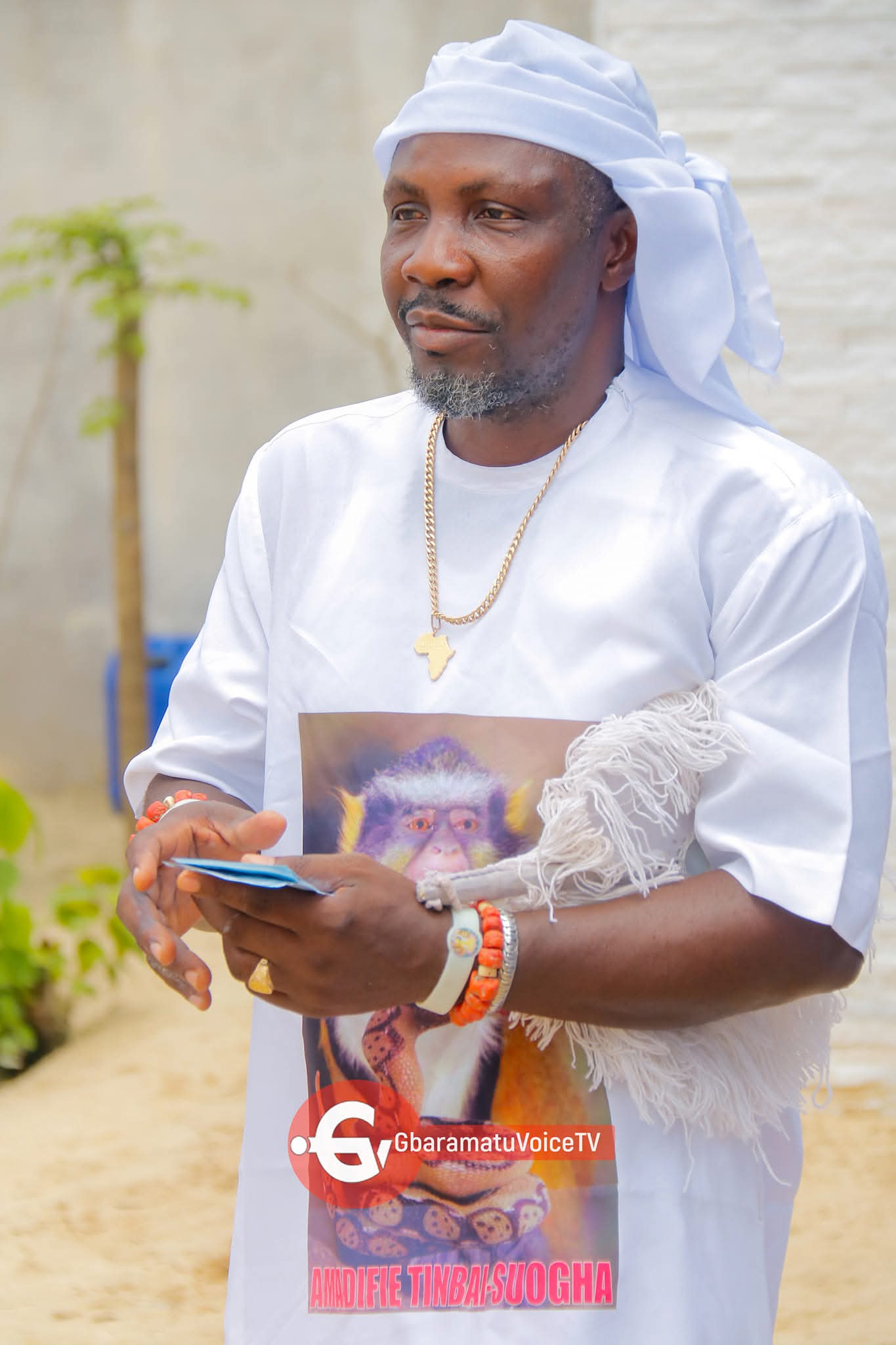
“Tompolo: A Movement of Transformation” – Prof. Binebai,
IduwiniVoice
Renowned Delta-born Professor of Professor of Drama, Dramatic Theory and Criticism, and an Auratorial god, Prof. Benedict Binebai has yet described High Chief Dr. Government Oweizide Ekpemupolo, popularly known as Tompolo as ‘A Movement of Transformation”
In his words, “Tompolo is a multifaceted entity, a veritable institution that defies categorisation, embodying a dynamic force that permeates various aspects of society. As an agency, it represents a powerful catalyst for change, driving progress and innovation in its wake. As a model, Tompolo exemplifies excellence, demonstrating a paradigm of leadership that is at once inspiring and aspirational. His influence extends far beyond the realm of politics, permeating the cultural, religious, and spiritual spheres, where he fosters a sense of unity and shared purpose.
“As a movement, Tompolo is a seismic force, shaking the foundations of complacency and stagnation, and galvanising individuals to strive for a brighter future. His impact is felt across generations, as he empowers young and old alike to become agents of positive change in their communities. In the realm of politics, Tompolo’s leadership has been characterised by a commitment to justice, equality, and the empowerment of the marginalised. His vision for a more equitable society has inspired countless individuals to work towards a common goal, forging a sense of solidarity and shared humanity.
“Culturally, Tompolo has been a luminary, celebrating the rich diversity of Nigerian heritage while promoting a sense of national identity and pride. His influence has helped to preserve traditional values while embracing modernity, creating a unique blend of old and new. Spiritually, Tompolo’s message of hope and redemption has resonated with people from all walks of life, offering a sense of solace and comfort in times of uncertainty. His leadership has embodied a sense of compassion and empathy, inspiring a new generation of spiritual leaders to follow in his footsteps.
“In every sense, Tompolo is a transformative force, a shining example of what can be achieved through dedication, perseverance, and a commitment to the greater good. He is an impeccable movement because his philosophy, his love for society, his cultural activism, his religiosity and leadership grace and skill which is human centered is attracting a large followership, particularly in the Nigerian Delta, where his impact is deeply felt.”
This assertions resonates well with popular sentiments held not just across the Delta of Nigeria but far beyond. Tompolo’s increasing popularity waxes stronger on the pillars of his dedication to homemade ijaw naturality, largeheartedness, stern capability in securing critical national economic assets and the environment, and above all, a detribalized collaborative efforts with other critical stakeholders within and outside the Niger Delta for peace, stability, infrastructural development, and economic process.
(c) IduwiniVoice



